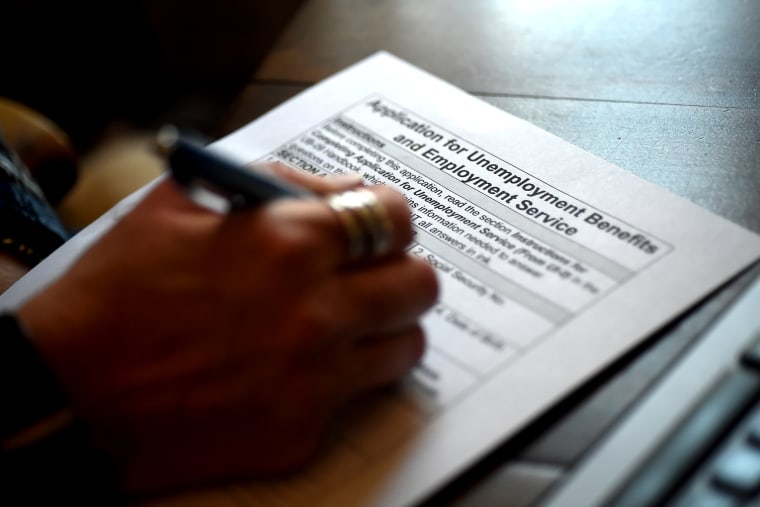As regular readers know, progress on weekly unemployment claims has been hit or miss in recent months, though the new report from the Labor Department pointed in a much more encouraging direction. CNBC reported this morning:
First-time claims for unemployment insurance unexpectedly fell sharply last week amid signs that hiring has picked up in the U.S. economy, the Labor Department reported Thursday. Claims totaled 684,000 for the week ended March 20, the first time the number has been below 700,000 during the Covid-19 era. The level was a substantial decline from the 781,000 from a week earlier.
There's no denying the fact that this is encouraging data. It was exactly one year ago this week when jobless claims first spiked in response to the COVID-19 crisis, climbing to over 3 million. That weekly total soon after reached nearly 7 million.
Eventually, there were gradual and painfully slow improvements, but at no point over the course of the last year did the weekly total of first-time unemployment claims drop below 700,000. Today's report, however, showed the United States finally crossing that nagging threshold. It suggests relief efforts are having their intended effect, and the economy is starting to recover.
But let's also not lose sight of the larger context: a report pointing to 684,000 jobless claims isn't exactly good news in its own terms. For unemployment filings, the single worst point of the Great Recession came in the spring of 2009 -- coincidentally, 12 years ago next week. At that point, there were 665,000 jobless claims filed, and much of the country felt as if the economy had been hit by a truck.
More than a decade later, we haven't quite improved to that level yet. In fact, this is the 53rd consecutive week in which the number of Americans filing for unemployment benefits was worse than at any time during the Great Recession.
Indeed, Federal Reserve Chair Jerome Powell and Treasury Secretary Janet Yellen testified before the House Financial Services Committee this week and reminded lawmakers that while 2021 is likely to be a good year for the economy, there's still a long way to go.
There's nothing wrong with taking a moment to feel good about a step toward progress, so long as we remember that there are plenty of additional steps yet to take.
